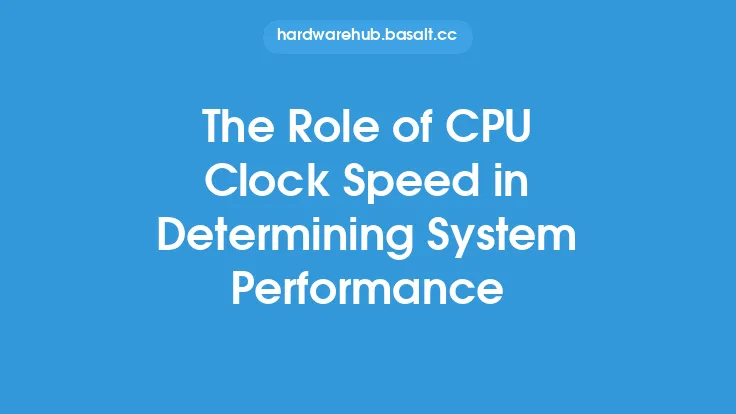Cache memory plays a crucial role in determining the performance of a computer's central processing unit (CPU). It acts as a high-speed buffer that stores frequently accessed data and instructions, allowing the CPU to access them quickly and efficiently. The importance of cache memory in CPU performance cannot be overstated, as it has a direct impact on the overall speed and efficiency of the system.
Introduction to Cache Memory
Cache memory is a small, fast memory that stores copies of the data and instructions that the CPU uses most often. It is typically built into the CPU or located on the motherboard, and its primary function is to reduce the time it takes for the CPU to access main memory. By storing frequently accessed data in a faster, more accessible location, cache memory helps to minimize the delay between the time the CPU requests data and the time it receives it.
How Cache Memory Improves CPU Performance
Cache memory improves CPU performance in several ways. First, it reduces the number of times the CPU needs to access main memory, which is slower and more power-hungry. By storing frequently accessed data in cache, the CPU can access it quickly and efficiently, without having to wait for the slower main memory to respond. This reduces the latency associated with memory access, allowing the CPU to execute instructions more quickly.
Second, cache memory helps to improve CPU performance by reducing the number of memory accesses required to execute a given task. When the CPU needs to access data that is not in cache, it must send a request to main memory, which can take several clock cycles. By storing frequently accessed data in cache, the CPU can reduce the number of memory accesses required, which helps to improve overall system performance.
Cache Memory and CPU Architecture
Cache memory is an integral part of CPU architecture, and its design and implementation can have a significant impact on system performance. Modern CPUs typically use a hierarchical cache structure, with multiple levels of cache that vary in size and speed. The fastest and smallest cache level is usually the L1 cache, which is built into the CPU core. The L2 cache is typically larger and slower than the L1 cache, and the L3 cache is usually the largest and slowest of all.
The cache hierarchy is designed to optimize performance by storing frequently accessed data in the fastest and most accessible cache level. The CPU uses a variety of techniques, including cache replacement policies and prefetching, to manage the cache hierarchy and ensure that the most frequently accessed data is stored in the fastest cache level.
Cache Memory and Power Consumption
Cache memory also plays a critical role in reducing power consumption in modern CPUs. By minimizing the number of memory accesses required to execute a given task, cache memory helps to reduce the power consumed by the system. This is because memory accesses are one of the most power-hungry operations in a CPU, and reducing the number of accesses required can help to significantly reduce power consumption.
In addition, cache memory can help to reduce power consumption by allowing the CPU to operate at lower clock speeds. When the CPU has access to a large and fast cache, it can execute instructions more quickly and efficiently, which allows it to operate at lower clock speeds and consume less power.
Conclusion
In conclusion, cache memory plays a vital role in determining the performance of a computer's CPU. By storing frequently accessed data and instructions in a fast and accessible location, cache memory helps to minimize the delay between the time the CPU requests data and the time it receives it. The importance of cache memory in CPU performance cannot be overstated, as it has a direct impact on the overall speed and efficiency of the system. As CPU architecture continues to evolve, the role of cache memory will remain critical in determining system performance and power consumption.





